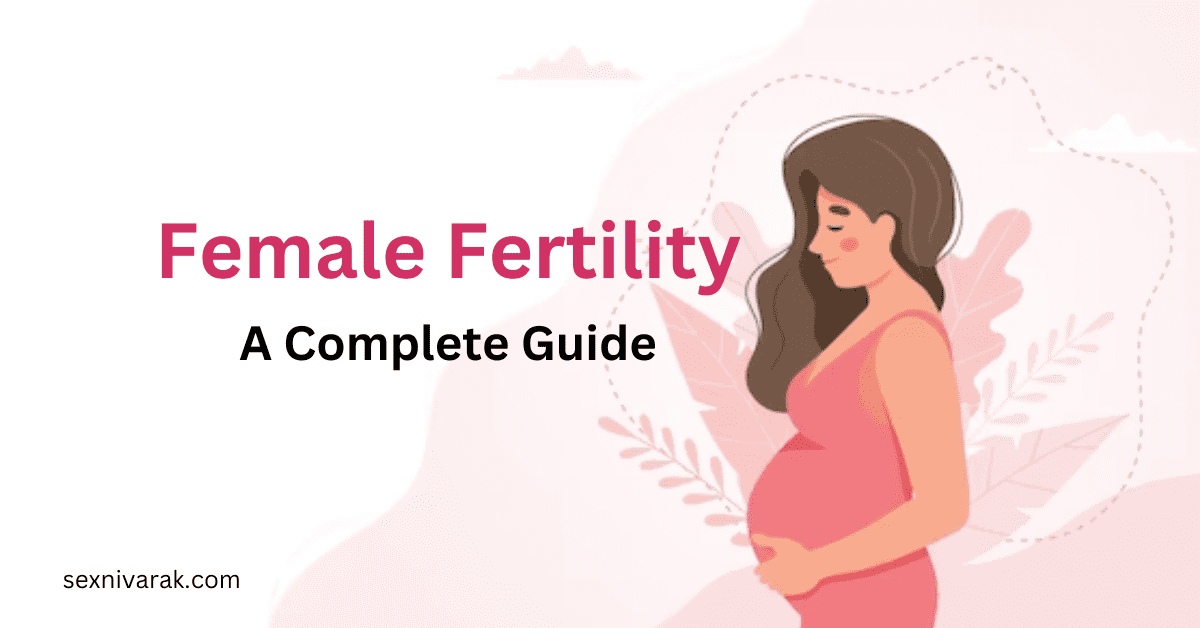Female fertility is a vital element in the process of childbirth and is often overlooked. It is a complex process involving several factors, including hormones, nutrition, lifestyle choices, and genetics.
For many women, fertility is a subject that has been covered in mystery and misconceptions. The basics of female fertility can help women better understand their bodies and make informed decisions about their reproductive health.
Female Fertility & Infertility
Female fertility can be affected by a variety of factors, such as age, lifestyle, and health conditions. Factors that can lead to infertility include endometriosis, polycystic ovary syndrome, and uterine fibroids.
What is Fertility?
Fertility is the ability of a woman to conceive and have a healthy pregnancy. It is decided by a woman’s physical and hormonal health, as well as her lifestyle and environmental factors.
Women are most fertile in their 20s when they have the highest amount of healthy quality eggs present, and their pregnancy risks are lowest.
As women age, their hormones change, which makes it difficult to become pregnant and sustain a healthy pregnancy. Moreover, environmental and lifestyle factors, such as smoking, drinking, and stress, can also impact a woman’s fertility.
What is Infertility?
Infertility is the inability to get pregnant after one year of unprotected sex. It may also refer to the inability to carry a pregnancy to term. It can have physical or emotional causes and is a condition that affects both men and women.
Infertility is a complex issue, and there is no single cause. It can be caused by multiple factors, including hormonal imbalances, endometriosis, polycystic ovary syndrome (PCOS), age, and stress.
Finding the cause of infertility is like solving a puzzle with missing pieces; some factors are evident. While in other cases, the pieces are hard to be found. 1 in 8 couples, or about 6.7 million people each year, have trouble conceiving.
Risk Factors to Female Fertility
A woman’s peak reproductive years are between the late teens and late 20s, but fertility begins reducing by age 30. The situation can occur due to the number and quality of eggs in a woman’s ovaries reducing with age, declining the chances of a successful pregnancy.

Several other risk factors contribute to impacting women’s fertility; they are as follows:
- Age
- Overweight (obesity) or underweight
- Abnormal menstrual cycles
- Endometriosis
- Uterine Fibroids
- Primary Ovary insufficiency (POI)
- Tumors or cysts
- Polycystic Ovary Syndrome (PCOS)
- Autoimmune disorders (lupus, rheumatoid arthritis, Hashimoto’s disease, thyroid gland conditions).
- Pelvic Inflammatory Disease (PID)
- Sexually Transmitted diseases (STIs)
- DSE Syndrome
- Ectopic Pregnancy
- Smoking, alcohol or drug consumption, tobacco usage, etc.
6 Natural Ways to Enhance Female Fertility

Women under the age of 30 have about a 25% chance of getting pregnant naturally each cycle, while the chance drops to 20% for women over 30. By the age of 40, the chance of getting pregnant naturally each month is just 5%.
So, if you’re looking to increase your chances of conceiving, try taking a look at these 6 natural fertility-enhancing methods.
- Add antioxidant-rich food to your diet
Antioxidants such as folate (Vitamin B-9) and zinc can improve fertility both in men and women. They deactivate free radicals in the body, which can harm both egg and sperm cells.
Foods rich in vitamins C and E, folate (Vitamin B-9), beta carotene, and lutein, along with fresh fruits, green and nutritious vegetables, nuts, and grains, are packed with antioxidants that are extremely beneficial for you.
- Reduce carbs if you have PCOS
PCOS affects between 5% and 10% of women between 15 and 44 years of age.
Women with PCOS are recommended to follow a low-carb diet. Women with PCOS are recommended to follow a low-carb diet. Consuming fewer carbs may help in reducing some of the symptoms associated with PCOS, such as irregular menstruation, acne, and hair growth.
- Take Multivitamins
If you start taking multivitamins, you might be less likely to face ovulatory infertility. Women who take three or more multivitamins per week may avoid up to 20% of ovulatory infertility.
Vitamins contain micronutrients that are essential for fertility. A multivitamin with folate may be helpful for women who are trying to get pregnant.
- Live an Active life, not a sedentary one
Exercise can help to increase fertility, as it can lower stress levels and increase circulation, both of which are necessary for healthy ovulation.
- Cut down caffeine intake
Caffeine can increase stress hormones, which can disrupt ovulation and can also disrupt the balance of hormones needed for a healthy pregnancy, and will disrupt female fertility. Regular exercise can help to balance hormones and reduce stress, which can lead to increased fertility.
- Avoid drugs and alcohol
Drugs and alcohol can interfere with the hormones needed for healthy ovulation and conception, and can also increase the risk of miscarriage and birth defects. Furthermore, drugs and alcohol can also impact the health of the mother and baby during pregnancy.
To Sum Up
Knowing your body, especially your reproductive system is essential for every individual. The body of a male or female undergoes plenty of changes from time to time. Therefore, it is necessary to know yourself and your needs.
If you experience any irregular signs and symptoms affecting female fertility, make sure to consult your doctor or physician right away.
Your body is beautiful, so don’t be ashamed to ask for help or suggestions. Taking good care of your health should be a priority, so be sure to always stay alert and knowledgeable about the warning signs of any health issue.


